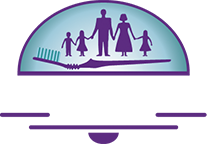Oral Surgery
Oral Surgery
Oral Surgery Services
When it comes to dentistry, only certain dentists perform surgical procedures. Whether you are looking for a new dentist or are currently under the care of one and need more intensive procedures, we encourage you to reach out to us. Our San Jose dental team can examine you, give you an opinion regarding whether or not you need surgery, what procedure will benefit you, and what you can expect from the process.
Why do people get oral surgery?
Health reasons
Tooth decay and gum disease are common dental problems that can lead to infections, pain, and discomfort. In some cases, the decay or damage is so extensive that a tooth cannot be saved and needs to be extracted. Oral surgery can also be used to correct gum problems, such as gum recession or to remove impacted wisdom teeth that can cause discomfort and future dental problems.
Cosmetic reasons
Oral surgery can also be used for cosmetic reasons, such as dental implant surgery to replace missing teeth or to correct jaw and facial abnormalities that affect a person’s appearance.
Orthodontic reasons
Oral surgery may be recommended by an orthodontist to prepare the mouth for braces or to correct jaw alignment issues that cannot be corrected with braces alone. In some cases, teeth may need to be extracted to make room for other teeth to properly align.
How do I prepare for oral surgery?
If you are preparing for oral surgery, here are some steps you can take to make the process as smooth and comfortable as possible:
Follow your dentist’s instructions
Your dentist or oral surgeon will provide you with specific instructions to follow before and after the procedure. Be sure to carefully read and follow these instructions to ensure the best possible outcome.
Arrange for someone to drive you home
Most oral surgeries require the use of anesthesia, which can leave you feeling drowsy or disoriented. Arrange for someone to drive you home from the procedure.
Avoid eating or drinking for several hours
You may be instructed to avoid eating or drinking anything for a few hours before your procedure. This is to help prevent complications from anesthesia.
Stock up on soft foods
After your surgery, you will likely experience some discomfort and swelling, making it difficult to chew. Stock up on soft foods like soups, mashed potatoes, and smoothies that are easy to eat and won’t irritate your surgical site.
Prepare ice packs and medications
Swelling and discomfort are common after oral surgery. Prepare ice packs to apply to the affected area and stock up on over-the-counter pain medication like ibuprofen or acetaminophen.
Wear comfortable, loose clothing
On the day of your procedure, wear comfortable, loose-fitting clothing that won’t restrict your movement or interfere with the surgical site.
Keep your mouth clean
Your dentist may instruct you to avoid brushing or flossing near the surgical site for a few days after the procedure. However, it’s important to keep your mouth clean to help prevent infection. Your dentist may provide you with a special mouth rinse to use after the surgery.
Remember, each patient and procedure is unique, so it’s important to follow your dentist’s specific instructions and ask any questions you may have before your surgery.
Is oral surgery used for orthodontics?
Yes, oral surgery is sometimes used as part of orthodontic treatment. When an orthodontist straightens teeth, they may need to address issues such as overcrowding, which can involve creating additional space in the mouth. One way to create space is by extracting teeth, although this is not always necessary.
In some cases, an orthodontist may also recommend oral surgery to change the position of the jaw, especially in cases of severe overbites or underbites that cannot be corrected through non-invasive methods. The surgery can help realign the jaw to improve overall dental function and aesthetics.
Ultimately, the need for oral surgery as part of orthodontic treatment depends on the individual patient’s dental issues and the recommended treatment plan. It’s best to discuss any concerns or questions with your orthodontist to determine the most appropriate course of action.
Can you provide me with oral surgery if I am being treated by another dentist?
Yes, we can provide oral surgery services even if you are being treated by another dentist. If your dentist has referred you to us for a surgical procedure, we can work together with them to ensure that you receive comprehensive dental care.
Alternatively, if you are seeking oral surgery independently and plan to continue receiving routine dental care from your regular dentist, we can also provide you with the necessary treatment. In either case, we will communicate with your regular dentist to ensure that they are aware of the procedure and can provide any necessary follow-up care.
At Plaza Dental Group, we prioritize collaboration and patient-centered care, so we will work with you and any other dental professionals involved in your care to provide the best possible treatment outcomes.
What is the recovery time for oral surgery?
The recovery time for oral surgery can vary depending on the type of procedure that was performed. Generally, you can expect to experience some temporary bleeding and swelling after the surgery, which can be controlled with gauze and ice packs. The duration and intensity of swelling can vary, but most patients experience the most swelling in the first 2-3 days after surgery.
Our dentist may prescribe antibiotics to prevent infection, and it’s important to follow the dosage and frequency recommended by our dentist. To manage any pain or discomfort, our dentist may also prescribe pain medications or recommend over-the-counter pain relievers like ibuprofen.
After oral surgery, it’s best to stick with soft foods that require minimal chewing for the first few days of recovery. You should also avoid drinking through a straw or smoking, as this can dislodge the blood clot and delay healing. Our dentist will provide you with detailed instructions on how to care for your mouth and what to expect during the recovery period.
Overall, the recovery time for oral surgery can range from a few days to a few weeks, depending on the procedure and how well you follow our dentist’s aftercare instructions.
RELATED ARTICLES
Call (408) 270-4333 to schedule an appointment or complete the form below. If you need more info, contact us directly.











